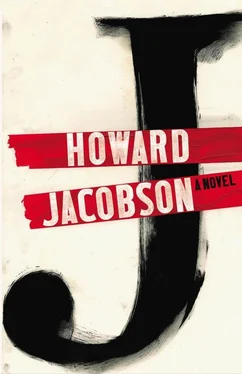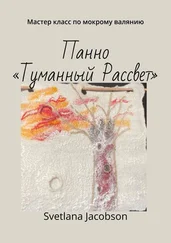Ailinn laughed at him. ‘I doubt the stuff is genuinely old,’ she said.
He thought he could smell the mustiness of antiquity on the streets. Mothballs, rotting shawls, old shoes, greasy hats, the forbidding odour of people long forgotten and garments that should have been thrown away. ‘What do you mean not genuinely old?’
‘Like your Kildromy-Biedermeier. I’d say they’re fake vintage.’
‘What’s the point of that?’
‘What’s the point of your Kildromy-Biedermeier? It’s a way of eating your cake and having it. This way they can cock a snook at the authorities without actually doing anything wrong. I think it’s fun. Why don’t we stop so you can buy me a crinoline and some cowboy boots? And I’ll buy you a Prussian officer’s outfit.’
‘To do what in?’
‘Ask me to dance. Take me into the woods. Whatever Prussian officers do.’
‘ Did ,’ he corrected her. ‘There are no more Prussian officers. I hate this playing with everything.’
‘Oh, Kevern, where’s your sense of fun?’
He smiled at her. It pleased him when she bested him. ‘Not everything is amenable to fun.’
‘You think we should be solemn about the past?’
‘I think we should let it go. What’s past is past.’
Had she not been driving she’d have rolled her eyes at him.
But she knew now he did not always say what he believed.
ii
Only as they approached the Necropolis proper did the stalls begin to thin out, though even then they did not vanish altogether. And where stores selling better clothes should have been there were mainly holes in the ground and cranes. Had there been more workmen about, the cranes could have been taken as evidence that massive development was under way, but these too had a vintage air, mementoes of busier days. In accordance with the city’s musty festivity, the cranes were festooned with tattered bunting and faded decorations from Christmases or other festivals long past.
At Kevern’s instigation — he didn’t want to be in the car a moment longer — they checked into a hotel in the part of the city once referred to in the fashion and travel magazines as Luxor, in deference to the opulence of the shopping. Luxor was where most of the grand hotels had been, though there was little of the old glamorous traffic in their lobbies or on the streets outside today. Foreign tourism fell off dramatically after WHAT HAPPENED and had never fully recovered. Who wanted to holiday in the environs of Babi Yar? That this was a reciprocal reluctance it suited the authorities to insist. If visitors didn’t want to come and holiday in our backyard, we sure as hell didn’t want to holiday in theirs. Where hadn’t things been done the stench of which remained abhorrent to the misinformed or oversensitive tourist? Nowhere was safe, when you really thought about it. Nowhere was pleasant. What country wasn’t a charnel house of its own history? You were better staying home, if you cared about that sort of thing, with your eyes closed and a cold compress on your forehead. You were better advised to keep to your individual fortress, shuttered and bolted against the movement, in or out, of people, infection and ideas. You contained your own conflagrations, that was the international wisdom, or at least that was the international wisdom as explained by Ofnow. Eventually, we’d all grow less nice in our expectations and things would get back to how they’d been.
In the meantime Luxor retained a little of its old exoticism thanks to the convergence of two accidents of history. Many of the oil rich who had been in the Necropolis, feasting on the decline of the banks (which, by some logic that only the most sophisticated economists understood, made them still richer), and gorging on the best of the new season’s fashions, found themselves, when WHAT HAPPENED happened, between the devil of abroad and the deep blue sea of home. They were conscious, even without the advice of their embassies, that WHAT HAPPENED, no matter that they’d welcomed and in some cases been instrumental in it, might easily happen to them next; but equally aware that the revolutionary fervour sweeping their own countries was an even greater danger to them, as a hated elite who could afford to spend half their lives in foreign hotels. What was spring to some was winter to them. Anxious about staying but terrified to leave, they spent what was left of their lives in fretful uncertainty, and now their grandchildren and their grandchildren’s children resided where they had been marooned, in a sort of melancholy but pampered limbo, some in the very hotels their grandparents had been staying in when the world convulsed. In the absence of anything else to do, they continued to shop, went on raiding the best stores when the seasons and the windows changed, as it was in their blood to do, but the city had ceased to be a centre of fashion, the clothes were shoddier, the jewellery cheaper, and there was nowhere now for them to return to show off their purchases.
It was a new, rare sight to Kevern and to Ailinn — these idly perambulating gold-ringed men in keffiyehs, paler-skinned, Kevern imagined, than their grandparents must have been, but still with those stern, warrior profiles he had been educated to idealise. The noble generosity of the Arab was as much a given in the citizenship classes Kevern had taken at school, as the free spontaneity of the Afro-Caribbean and the honest industriousness of the Asian. As for the chaste obedience of the women, that was still evident in the modesty of their dress.
‘Nice,’ Kevern commented, ‘to see some black.’
Ailinn said nothing.
As black as ravens, they seemed to her, but nothing like so purposeful, covered from head to foot, only their slow eyes and the gold heels of their shoes visible. She noted with amazement the docility of their bearing as they trailed a step or two behind their men, talking among themselves. Some wheeled perambulators, but in general there were few children. Where was the point in children? And where, anyway, were the nannies? How did it feel, she wondered, to live this privileged life of no design, like a protected species which could forage unimpeded for whatever it liked but with no nest to take its findings back to.
Some of the men smoked hookahs in the lounge of the hotel, morose, looking occasionally at their watches but never at their women who sat staring at their jewelled utility phones, bemused, waiting for them to ring or perform some other once sacred but now forgotten function — totems that had lost their potency. The women allowed their fingers idly to play across the decommissioned keypads. The men too were fidgety, their fingers never far from their prayer beads.
‘You should get a set of those, they could calm your nerves,’ Ailinn whispered, as they waited for a porter to take their luggage to their rooms. They were travelling light and could have carried their own, but the porters needed employment and where, anyway, was the hurry?
‘Are you implying I’m a fretter?’
‘You? A fretter!’ she laughed, holding on to his arm, then wondering whether, in such a place, it was disrespectful of her to stand so close to a man.
After he’d shown them to their room the porter took Kevern to one side and asked him if there were gramophone records, CDs or videos he was looking for. Bootleg blues bands, rock and roll, comedy — he knew where to lay his hands on anything. Kevern shook his head. What about books that had fallen out of print, bootleg tickets to underground cabarets, souvenir passports of those who hadn’t got away before WHAT HAPPENED, IF IT HAPPENED happened, belts and badges worn by the hate gangs of the time, incitement posters, pennants, cartoons, signed confessions. .?
Kevern wanted to know who would want such things. The porter shrugged. ‘Collectors,’ he said.
Читать дальше












